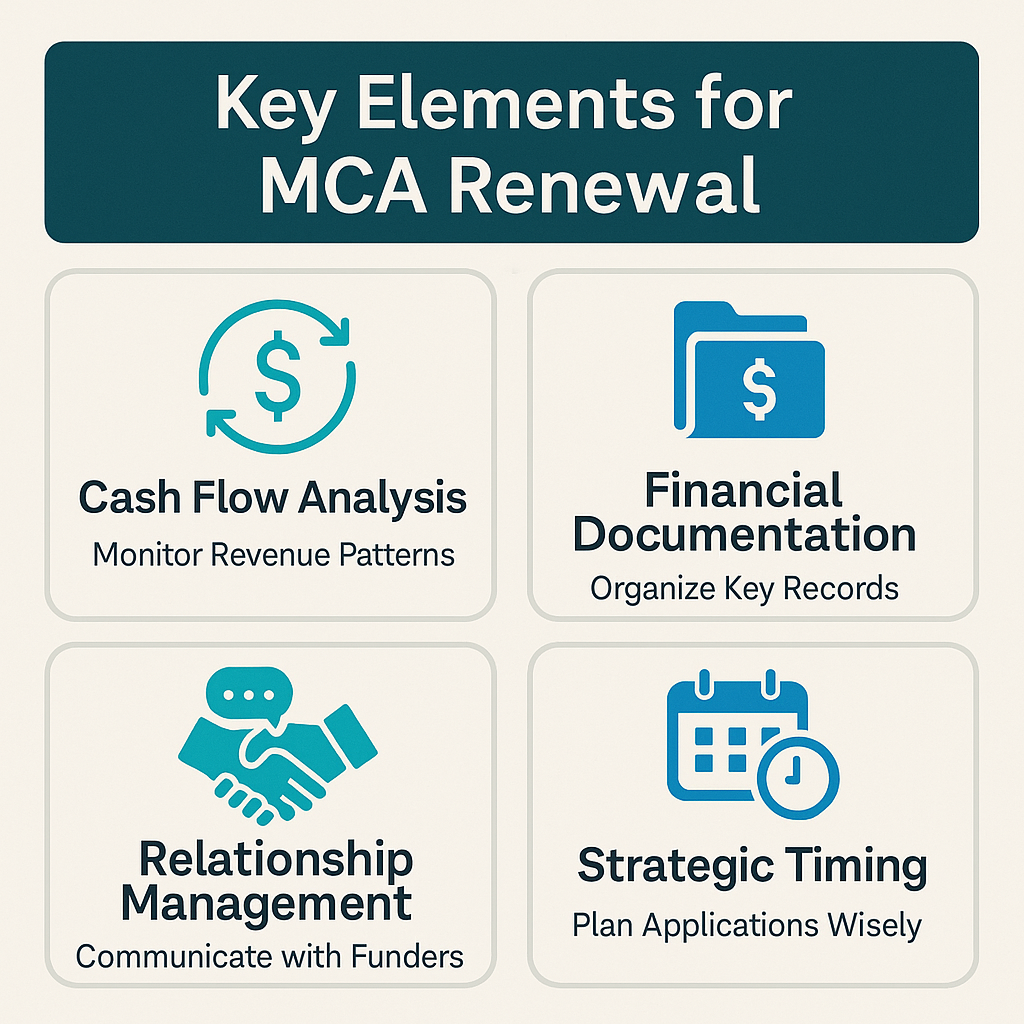The merchant cash advance industry faces significant regulatory shifts that could impact how businesses approach renewal strategies. With new SBA rules taking effect and evolving compliance requirements, developing an effective MCA renewal strategy requires careful planning and adaptation to changing market conditions.
Understanding the Current MCA Renewal Landscape
The MCA renewal landscape has shifted dramatically with recent regulatory changes affecting how businesses can approach repeat funding. Starting in June 2025, new SBA rules make merchant cash advances ineligible for refinancing, eliminating a key strategy that many merchants previously relied on to manage cash flows more effectively.
This regulatory change means businesses can no longer use refinancing options to secure lower rates or extend terms on existing advances. Instead, merchants must develop alternative approaches to renewal that focus on strategic timing and improved financial positioning. The industry continues to evolve with technological advancements, including AI-powered risk assessment tools that may create new opportunities for businesses with strong repayment histories.
Understanding these market dynamics becomes crucial for any effective MCA renewal strategy. Businesses that stay informed about regulatory changes and industry trends position themselves better to navigate the increasingly complex funding landscape and make strategic decisions about when and how to pursue additional funding.
Essential Elements of Effective MCA Renewal Planning

Building a solid foundation for MCA renewal planning involves several key components that can help businesses optimize their funding approach:
- Cash Flow Analysis: Monitor daily and weekly revenue patterns to identify optimal timing for renewal applications, ensuring you can demonstrate consistent performance to potential funders.
- Financial Documentation: Maintain organized records of bank statements, sales data, and existing advance performance to streamline the renewal process and present your business favorably.
- Relationship Management: Build strong communication with your current funder, as existing relationships often provide advantages in renewal scenarios and may offer insights into best practices.
- Strategic Timing: Plan renewal applications to avoid overlapping with seasonal revenue dips or other financial challenges that might impact your approval odds or terms.
Strategies to Maximize Renewal Success
Implementing proven strategies can significantly improve your chances of successful MCA renewal while potentially securing better terms:
- Performance Demonstration: Showcase consistent repayment history and improved business metrics since your initial advance, as this data helps funders assess your creditworthiness for repeat funding.
- Business Growth Evidence: Present concrete examples of how previous funding contributed to business expansion, increased revenue, or operational improvements that strengthen your renewal case.
- Market Positioning: Stay informed about industry developments and regulatory changes that might affect your renewal options, allowing you to adapt your strategy accordingly.
- Alternative Options: Research multiple funding sources and maintain relationships with various providers, ensuring you have backup options if your primary renewal strategy faces obstacles or if you need MCA funding.
Developing a successful MCA renewal strategy requires adapting to new regulatory realities while focusing on fundamental business strengths. By maintaining strong financial records, building solid funder relationships, and staying informed about industry changes, businesses can navigate the evolving landscape more effectively. Remember that regulatory shifts may create challenges, but they also encourage more strategic approaches to business funding that could benefit long-term financial health.

.png)

.svg)





